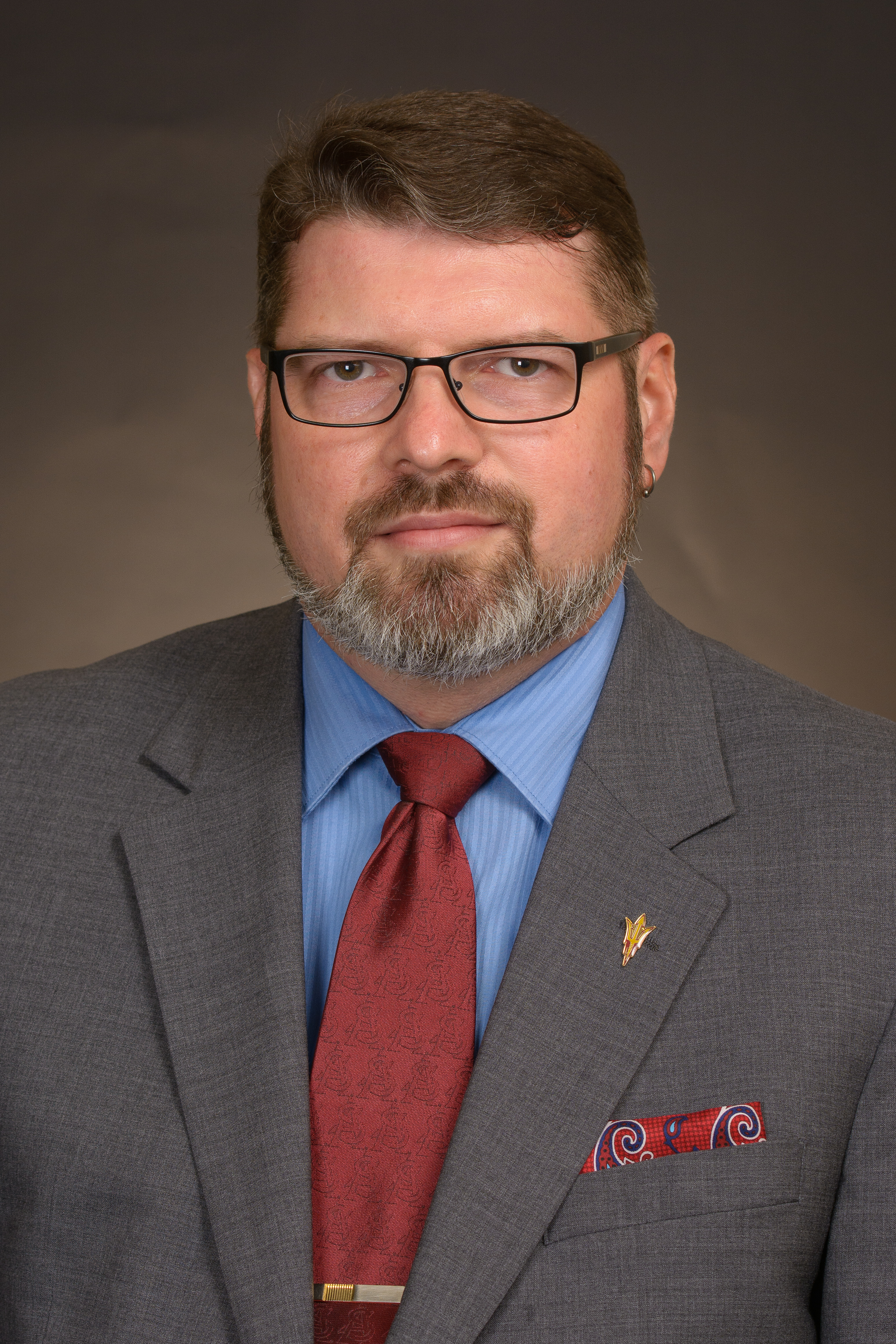Senator Spotlight September 2016
The September 2016 Senator Spotlight is on Keith Hollinger
What unit do you represent?
College of Integrative Sciences and Arts, Social Sciences program on the Polytechnic Campus.
How many years have you served on the Senate?
This is my fourth year. I spent a little time serving as a substitute before becoming a Senator or campus Senate President.
How many years have you been employed at ASU? What other institutions have you taught at before coming to ASU?
I have just begun my fifth year at ASU.
What is your research and/or creative activities focus?
My research is on the intersection of peace, conflict, and development. I am particularly interested in finding ethical solutions to post-conflict development dilemmas that may result in resilient and sustainable communities.
Why did you decide to get involved with the Senate?
I became a senator so that I could become an active participant in our community. We have an opportunity to be a more active part of our broad learning community in the Senate. I also felt a responsibility to participate in our shared governance; I study conflicted societies, in which playing a role in governing anything about life is an impossibility, I appreciate having that opportunity.
Describe what you have learned during your time on the Senate.
I have learned a lot about the broad community at ASU. I have met colleagues from most colleges, every campus, and most disciplines. The most valuable thing that I learned is that we are all here to do our part for a better world. We teach, we do research, we support each other, we lead and mentor each other, and we have a shared interest in ensuring the success of our students. Before being part of the Senate I was not aware of the extent to which people across the university work together for the success of our students, each other, and the institution.
What committees have you participated in, or would like to participate in and what were you able to (or hope to) accomplish.
I have served on a number of committees. The most memorable were the Ad Hoc Committee for ACD 402 review, and serving as the Chair of the Student Faculty Policy Committee (SFPC). The ACD 402 committee was a very challenging committee to serve on as we wrestled with language to find an appropriate way to address relationships between faculty and students. Serving as the SFPC chair has allowed me to support both faculty and students and to begin to resolve some of the issues that arise between the groups.
What would you say to your peers who might be considering accepting a nomination or nominating themselves for a position on the Senate?
I strongly encourage anyone to accept a nomination to the Senate or one of our various committees. The people who serve on the Senate and on its committees are dedicated, interesting, and intelligent people. The community is strong and the issues are constantly evolving.
